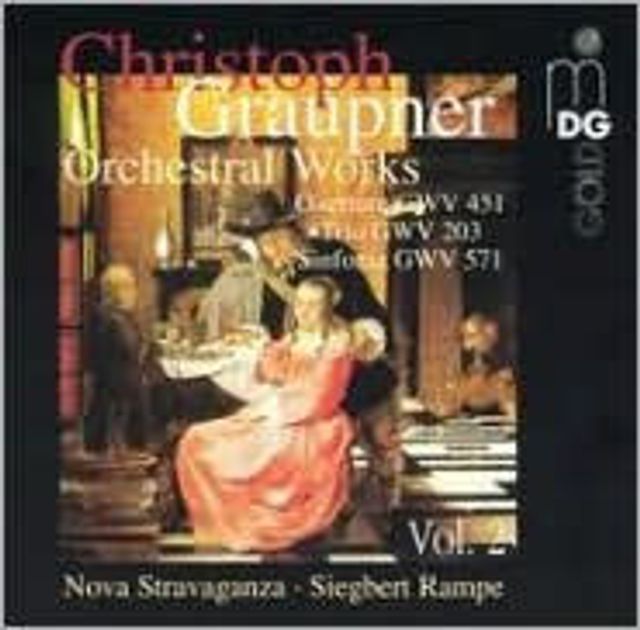Home
Novák: Orchestral Works, Vol. 2
Barnes and Noble
Novák: Orchestral Works, Vol. 2
Current price: $21.99


Barnes and Noble
Novák: Orchestral Works, Vol. 2
Current price: $21.99
Size: OS
Loading Inventory...
*Product information may vary - to confirm product availability, pricing, shipping and return information please contact Barnes and Noble
Vitezslav Novak
was a student of
Dvorak
. At the last turn of the century, he was hardly known outside of Czech lands, but the
Naxos
label has set out to change that with a series of well-made recordings. This one, by Classical-era specialist
Marek Stilec
with the
Janacek Philharmonic Ostrava
, helps the cause along. The music will probably be unknown even to Czechs. The main attraction, the
Moravian-Slovak Suite, Op. 32
, was rediscovered by producer
Jiri Stilec
and here receives its first recording. Composed in 1903, it depicts a day in the life of a Slovak village. It is brisk, concise, romantic in more than one spot, and thoroughly entertaining. The
Two Wallachian Dances, Op. 34
, are even more heavily oriented toward folk music, and it would be interesting to know whether the young
Bartok
knew them. The final
De profundis, Op. 67
, is something else again, a genuinely tragic document marking the Nazi invasion of Czechoslovakia. To present it in 1941 to a mixed audience of Czechs and Germans was a gutsy move, even if there was no text. It is as grim as, but different in flavor from,
Shostakovich
's serious wartime works, and it too deserves the new hearing it is getting here. A fine excavation job that may add new items to the 20th century orchestral repertory. The
shows the deep bench of Czech orchestras, and the performances are fully competent. ~ James Manheim
was a student of
Dvorak
. At the last turn of the century, he was hardly known outside of Czech lands, but the
Naxos
label has set out to change that with a series of well-made recordings. This one, by Classical-era specialist
Marek Stilec
with the
Janacek Philharmonic Ostrava
, helps the cause along. The music will probably be unknown even to Czechs. The main attraction, the
Moravian-Slovak Suite, Op. 32
, was rediscovered by producer
Jiri Stilec
and here receives its first recording. Composed in 1903, it depicts a day in the life of a Slovak village. It is brisk, concise, romantic in more than one spot, and thoroughly entertaining. The
Two Wallachian Dances, Op. 34
, are even more heavily oriented toward folk music, and it would be interesting to know whether the young
Bartok
knew them. The final
De profundis, Op. 67
, is something else again, a genuinely tragic document marking the Nazi invasion of Czechoslovakia. To present it in 1941 to a mixed audience of Czechs and Germans was a gutsy move, even if there was no text. It is as grim as, but different in flavor from,
Shostakovich
's serious wartime works, and it too deserves the new hearing it is getting here. A fine excavation job that may add new items to the 20th century orchestral repertory. The
shows the deep bench of Czech orchestras, and the performances are fully competent. ~ James Manheim


















